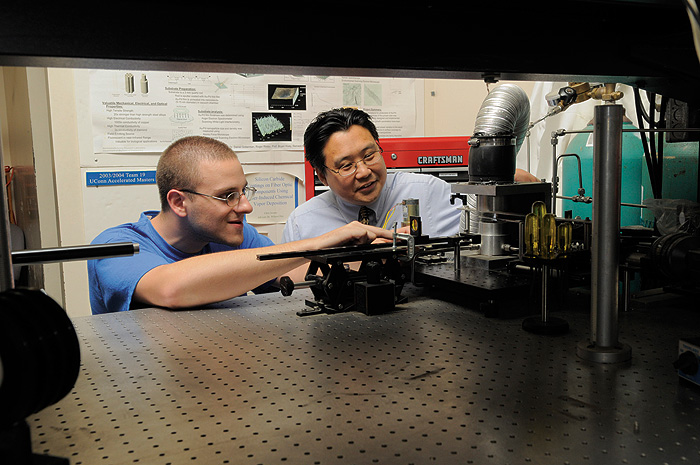Dr. Wilson K.S. Chiu, assistant professor of Mechanical Engineering, recently received an Army Research Office (ARO) Young Investigator Award. Dr. Chiu won the $150,000 three-year award for his proposed work in the area of optimization of solid oxide fuel cells (SOFCs) for field use by Army personnel.
He explained that the Army is keenly interested in portable power sources to replace batteries currently used in the field. These power sources can consume methane, propane and other hydrocarbon-based fuels. Soldiers going on a three-day field mission, for example, may now carry over 30 pounds of batteries in addition to their communications gear, weaponry, food and other assorted items. The batteries are used in weaponry, computers, communications devices, GPS, air conditioning and the like. The weight burden for the soldier easily ranges over 100 pounds, reducing mobility, producing greater soldier fatigue and diminishing flexibility. The Army seeks lighter power units as a means to dramatically enhance efficiency of the individual soldier.
Dr. Chiu’s approach involves improving the energy and power density of SOFCs so they perform more efficiently. Increased energy density will permit longer missions while improving power density will enhance the soldier’s capabilities. Dr. Chiu’s efforts will focus on optimizing the manner in which fuel is transported, distributed and consumed within the fuel cell, and on more efficient and swift removal of byproducts. Some improvements have already been realized in fuel cell design; however, Dr. Chiu commented that the electrode microstructure of existing fuel cells is not fully optimized, and it is here he believes improvements can bear fruit for both military and commercial applications.
Dr. Chiu received his Ph.D. in Mechanical Engineering from Rutgers University in 1999 and joined the University of Connecticut the same year. He previously received a National Science Foundation CAREER Award as well as the Young Investigator Award from the Office of Naval Research. Competition for the awards is intense, and Dr. Chiu has achieved a rare distinction in winning all three.



